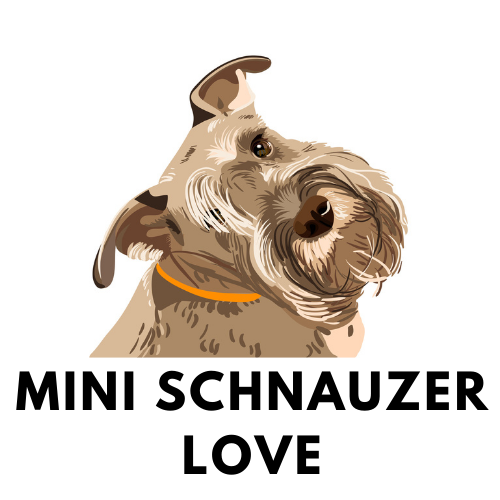
Introduction to Mini Schnauzer Nutrition and Joint Health
Welcome to our comprehensive guide on Mini Schnauzer nutrition and joint health. In this section, we will provide an overview of the Mini Schnauzer breed, discuss the importance of diet in maintaining their health, and explore the link between diet and joint health in dogs.
- Overview of Mini Schnauzer breed
- Importance of diet in Mini Schnauzer health
- Link between diet and joint health in dogs
The Miniature Schnauzer, often referred to as a Mini Schnauzer, is a small, robust, and energetic breed of dog. Originating from Germany, these dogs are known for their distinctive beards and eyebrows. They are intelligent, playful, and tend to have a longer lifespan compared to other breeds, often living up to 15 years or more. However, like any breed, they have specific dietary needs and are prone to certain health issues, including joint problems.
Proper nutrition plays a crucial role in the overall health and longevity of a Mini Schnauzer. A balanced diet helps maintain their ideal body weight, supports their immune system, promotes a healthy coat, and can prevent or manage certain health issues. For instance, Mini Schnauzers are prone to obesity, which can lead to serious health problems like diabetes and joint issues. Therefore, it’s essential to monitor their food intake and ensure they are getting the right nutrients.
Research has shown a direct link between a dog’s diet and its joint health. Certain nutrients, like Omega-3 fatty acids, glucosamine, and chondroitin, can help maintain healthy joints and reduce inflammation. On the other hand, an unhealthy diet or overfeeding can lead to obesity, which puts extra strain on a dog’s joints and can lead to conditions like arthritis. Therefore, it’s important to feed your Mini Schnauzer a balanced diet that supports joint health.
Understanding the nutritional needs of your Mini Schnauzer and the impact of diet on their joint health can help you make informed decisions about their care. In the following sections, we will delve deeper into these topics, providing practical diet tips and highlighting case studies that demonstrate the impact of diet on Mini Schnauzer health.
Understanding Joint Health in Mini Schnauzers
Joint health is a crucial aspect of a Mini Schnauzer’s overall well-being. It’s important to understand the common joint health issues that can affect these small, energetic dogs. This knowledge can help you take preventative measures and provide the best care for your furry friend.
Common Joint Health Issues in Mini Schnauzers
Mini Schnauzers, like many other breeds, can be prone to certain joint health issues. These conditions can cause discomfort and limit their mobility. Let’s take a closer look at the three most common joint health issues in Mini Schnauzers:
- Arthritis
- Hip Dysplasia
- Patellar Luxation
Arthritis is a condition that causes inflammation and pain in the joints. It’s common in older Mini Schnauzers but can also affect younger dogs. Symptoms include limping, difficulty moving, and a decrease in activity levels.
Hip dysplasia is a genetic condition where the hip joint doesn’t fit together properly. This misalignment can lead to arthritis over time. Mini Schnauzers with hip dysplasia may show signs like difficulty standing up, reluctance to run or jump, and a “bunny hop” gait.
Patellar luxation, or a dislocated kneecap, is another common joint issue in Mini Schnauzers. This condition can cause intermittent lameness and an abnormal gait. In severe cases, surgery may be necessary.
Early detection and treatment of these conditions can greatly improve your Mini Schnauzer’s quality of life. Regular vet check-ups, a balanced diet, and appropriate exercise are key to maintaining good joint health.
Impact of Diet on Mini Schnauzer Joint Health
When it comes to the joint health of Mini Schnauzers, diet plays a significant role. Let’s delve into the details of how nutrition and weight can impact their joint health.
- Role of nutrition in joint care
- Impact of obesity on joint health
Nutrition is the cornerstone of your Mini Schnauzer’s joint health. A balanced diet rich in essential nutrients like proteins, vitamins, and minerals can help maintain healthy joints. For instance, Omega-3 fatty acids, found in fish and flaxseeds, are known to reduce inflammation and can help manage joint pain. Similarly, Vitamin C and E are antioxidants that protect the body, including the joints, from damage.
Glucosamine and chondroitin are other important nutrients that support joint health. They are naturally found in the cartilage and can help maintain its health and repair any damage. While these nutrients are naturally produced in the body, their production decreases with age. Therefore, it’s essential to include them in your Mini Schnauzer’s diet.
Obesity is a common issue in Mini Schnauzers and can severely impact their joint health. Extra weight puts additional pressure on the joints, leading to wear and tear. This can result in joint issues like arthritis and hip dysplasia.
According to a study, obese dogs are twice as likely to suffer from joint diseases compared to their healthy-weight counterparts. Therefore, maintaining a healthy weight is crucial for your Mini Schnauzer’s joint health. Regular exercise and a balanced diet can help manage your pet’s weight and improve their joint health.
| Nutrient | Benefits | Sources |
|---|---|---|
| Omega-3 Fatty Acids | Reduce inflammation and joint pain | Fish, Flaxseeds |
| Vitamin C & E | Protect the body from damage | Fruits, Vegetables |
| Glucosamine & Chondroitin | Support joint health and repair damage | Cartilage, Supplements |
Healthy Diet for Mini Schnauzer: Key Components
When it comes to the health of your Mini Schnauzer, diet plays a crucial role. A balanced diet can help maintain their overall health and specifically, their joint health. Let’s delve into the key components of a healthy diet for your Mini Schnauzer.
Essential Nutrients for Mini Schnauzer Joint Health
There are certain nutrients that are particularly beneficial for the joint health of Mini Schnauzers. Here are three of them:
- Omega-3 Fatty Acids
- Glucosamine and Chondroitin
- Vitamin E
Omega-3 fatty acids are known for their anti-inflammatory properties. They can help reduce joint inflammation, thus improving mobility and reducing discomfort in Mini Schnauzers. Foods rich in Omega-3s include fish like salmon and mackerel, flaxseeds, and chia seeds.
Glucosamine and Chondroitin are natural substances found in and around the cells of cartilage. They help in the repair and maintenance of joint cartilage, and can be beneficial for dogs suffering from arthritis. These nutrients are often found in joint supplements for dogs.
Vitamin E is a powerful antioxidant that can help protect your Mini Schnauzer’s joints from damage caused by free radicals. It also supports the immune system and promotes healthy skin and coat. Foods rich in Vitamin E include spinach, broccoli, and certain types of nuts and seeds.
Remember, it’s important to consult with your vet before making any major changes to your Mini Schnauzer’s diet. They can provide guidance based on your dog’s specific needs and health status.
Best Food Options for Mini Schnauzer Joint Health
Feeding your Mini Schnauzer the right diet is crucial for their joint health. Here are some of the best food options to consider:
- High-quality commercial dog foods: Not all dog foods are created equal. High-quality commercial dog foods often contain the right balance of nutrients that your Mini Schnauzer needs for optimal joint health. These foods are usually rich in Omega-3 fatty acids, glucosamine, chondroitin, and Vitamin E, which are essential for maintaining healthy joints. Always check the label to ensure that these nutrients are included in the food.
- Homemade diet options: If you prefer to prepare your pet’s meals at home, there are plenty of healthy options that can support their joint health. Foods like fish, chicken, and certain vegetables are rich in the nutrients your Mini Schnauzer needs. However, it’s important to consult with a vet or a pet nutritionist to ensure that your homemade diet is balanced and complete.
- Supplements for joint health: In addition to a balanced diet, supplements can also help improve your Mini Schnauzer’s joint health. Supplements like glucosamine and chondroitin can help maintain healthy cartilage, while Omega-3 fatty acids can reduce inflammation in the joints. However, it’s important to consult with your vet before starting any supplement regimen.
Remember, every dog is unique and what works for one might not work for another. It’s always best to consult with a vet or a pet nutritionist to determine the best diet for your Mini Schnauzer’s joint health.
Mini Schnauzer Diet Tips for Improved Joint Health
Feeding your Mini Schnauzer the right diet is crucial for their overall health, especially their joints. Here are some tips to help you create a balanced diet for your furry friend.
Creating a Balanced Diet for Your Mini Schnauzer
Creating a balanced diet for your Mini Schnauzer involves considering several factors. These include the portion sizes, feeding schedule, and your dog’s age and activity level.
- Proper Portion Sizes
- Maintaining a Feeding Schedule
- Considering Your Dog’s Age and Activity Level
Feeding your Mini Schnauzer the right portion sizes is essential. Overfeeding can lead to obesity, which puts extra stress on your dog’s joints. On the other hand, underfeeding can lead to malnutrition and weak joints. A good rule of thumb is to feed your Mini Schnauzer about 1 cup of food for every 10 pounds of body weight. However, this can vary depending on your dog’s age, size, and activity level.
Sticking to a consistent feeding schedule can help regulate your Mini Schnauzer’s metabolism and maintain a healthy weight. Typically, adult Mini Schnauzers should be fed twice a day, while puppies may require three to four meals a day.
Your Mini Schnauzer’s age and activity level also play a crucial role in their diet. Puppies and active dogs require more calories, while older or less active dogs need fewer calories. Always consult with your vet to determine the best diet for your Mini Schnauzer’s specific needs.
In conclusion, creating a balanced diet for your Mini Schnauzer involves considering several factors. By following these tips, you can help improve your dog’s joint health and overall well-being.
Transitioning Your Mini Schnauzer to a New Diet
Changing your Mini Schnauzer’s diet is a significant step that requires careful planning and execution. It’s not just about introducing new food; it’s about ensuring your dog’s health and well-being. Here are some tips to help you make this transition as smooth as possible.
- Gradual transition process
- Monitoring your dog’s reaction to the new diet
When transitioning your Mini Schnauzer to a new diet, it’s essential to do it gradually. A sudden change can cause digestive upset or even make your dog reject the new food. Start by mixing a small amount of the new food with the old one. Gradually increase the proportion of the new food over a week or two until it completely replaces the old diet. This slow transition will help your dog’s digestive system adjust to the new food.
As you introduce the new diet, closely monitor your Mini Schnauzer’s reaction. Pay attention to their appetite, energy levels, and bowel movements. If your dog shows signs of discomfort, like vomiting, diarrhea, or loss of appetite, it might be a sign that the new diet is not suitable for them. In such cases, consult your vet immediately. Remember, every dog is unique, and what works for one might not work for another.
In conclusion, transitioning your Mini Schnauzer to a new diet is a process that requires patience and careful observation. Always prioritize your dog’s health and comfort over any diet trend. And most importantly, always consult with your vet before making any significant changes to your dog’s diet.
Case Studies: Impact of Diet on Mini Schnauzer Health
Let’s delve into some real-life examples to understand the profound impact of diet on the health of Mini Schnauzers, particularly their joint health.
Case Study 1: Improving Joint Health Through Diet
Meet Max, a 6-year-old Mini Schnauzer who was suffering from joint pain and stiffness. His vet suspected early signs of arthritis, a common joint issue in Mini Schnauzers. Max’s owner decided to make some significant changes to his diet to help improve his joint health.
Max’s previous diet was high in processed foods and lacked essential nutrients. His new diet plan included:
- High-quality protein sources like chicken and fish
- Omega-3 fatty acids from fish oil for their anti-inflammatory properties
- Glucosamine and chondroitin supplements for joint support
- Fruits and vegetables for their antioxidants and vitamins
After 6 months on this new diet, Max’s owner reported noticeable improvements. Max was more active, had less stiffness, and seemed to be in less pain. His vet confirmed that his joint health had improved significantly.
| Max’s Health Indicator | Before Diet Change | After Diet Change |
|---|---|---|
| Activity Level | Low | High |
| Joint Stiffness | High | Low |
| Joint Pain | High | Low |
This case study highlights the potential benefits of a well-balanced, nutrient-rich diet for Mini Schnauzers. A diet that supports joint health can make a significant difference in their quality of life, as seen in Max’s case.
Case Study 2: The Role of Diet in Preventing Joint Issues
Understanding the role of diet in preventing joint issues is crucial for maintaining the health of your Mini Schnauzer. Let’s delve into a case study that showcases the impact of a well-balanced diet on a Mini Schnauzer’s joint health.
Meet Bella, a 5-year-old Mini Schnauzer. Bella’s owner noticed that she was limping and seemed to be in pain when she moved. After a visit to the vet, Bella was diagnosed with early signs of joint issues.
Instead of relying solely on medication, Bella’s owner decided to make a significant change to her diet. The goal was to include foods rich in Omega-3 fatty acids, glucosamine, and antioxidants – all known for their benefits in promoting joint health.
| Food | Benefit |
|---|---|
| Fish (Salmon, Sardines) | Rich in Omega-3 fatty acids which reduce inflammation |
| Green Lipped Mussels | High in glucosamine, helps in joint repair |
| Blueberries | Packed with antioxidants, combat harmful free radicals |
After a few months of this dietary change, Bella’s owner noticed a significant improvement. Bella was more active, her limping reduced, and she seemed happier and more comfortable. This case study shows how a tailored diet can play a crucial role in preventing and managing joint issues in Mini Schnauzers.
In conclusion, a balanced diet, rich in specific nutrients, can significantly impact a Mini Schnauzer’s joint health. It’s always important to consult with your vet before making any significant changes to your pet’s diet.
Conclusion: The Link Between Mini Schnauzer Diet and Joint Health
As we wrap up our discussion on Mini Schnauzer nutrition and joint health, it’s clear that a well-balanced diet plays a crucial role in maintaining healthy joints in these adorable pets. Let’s summarize the key takeaways and emphasize the importance of regular vet check-ups.
- Key Takeaways
- Importance of Regular Vet Check-ups
Firstly, a diet rich in essential nutrients like proteins, vitamins, and minerals is fundamental for a Mini Schnauzer’s joint health. Foods like lean meats, fish, fruits, and vegetables are excellent sources of these nutrients.
Secondly, maintaining a healthy weight is equally important. Overweight Mini Schnauzers are more prone to joint problems, so portion control and regular exercise are vital.
Lastly, supplements can be beneficial, especially for older Mini Schnauzers. Glucosamine and chondroitin supplements can help maintain joint health and mobility.
Regular vet check-ups are essential to monitor your Mini Schnauzer’s health. Vets can detect early signs of joint problems and recommend dietary adjustments or treatments as needed. They can also guide you on the right supplements and exercise routines for your pet.
In conclusion, a balanced diet and regular vet check-ups are key to ensuring your Mini Schnauzer enjoys a life free from joint problems. Remember, your pet’s health is in your hands, so make every meal count!














